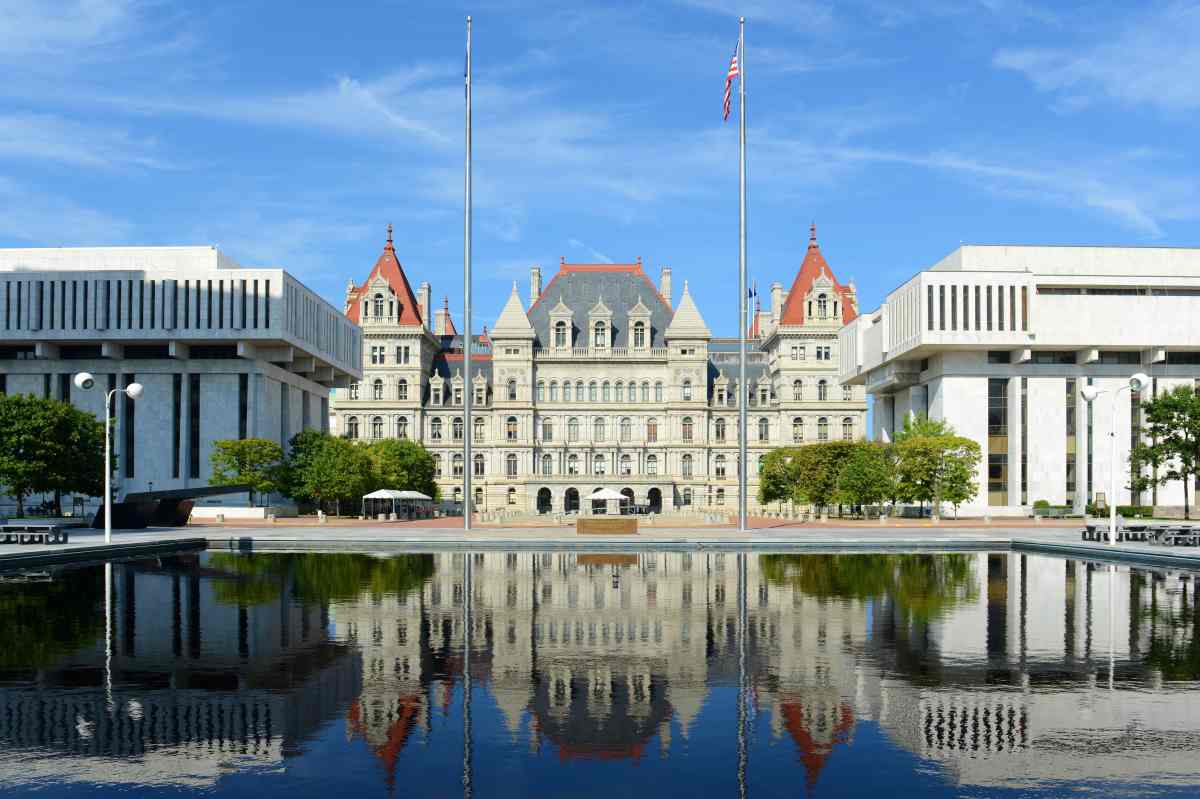Banning plastic shopping bags, congestion pricing, and making the two percent property tax cap permanent are just some of the big changes for Long Island tucked in the New York State budget.
The State Legislature passed the $175.5 billion spending package by the April 1 deadline on Monday morning. In it are measures that will impact daily life for many Long Islanders.
“This is the broadest, most sweeping state budget that we have done,” said Gov. Andrew Cuomo.
Here are the main takeaways:
CONGESTION PRICING
The much-debated toll on drivers that go below 60th Street in Manhattan passed. It’s called Central Business District Tolling and is designed to cut both gridlock and vehicle-related air pollution as well as raise revenue for mass transit.
Tolling will start no earlier than Jan. 1, 2020, once members of the Traffic Mobility Review Board pieces together recommendations for the full implementation.
While congestion pricing is expected to raise $15 billion for the MTA’s next five-year capital plan starting next year, MTA President Pat Foye said $7 billion from the federal government and revenue from other taxes will bring the MTA $32 billion total.
BAG BAN
Also included in the state budget is a ban on single-use plastic bags to protect the environment. Shoppers will have to bring their own bag for groceries, or opt to pay a 5-cent fee for a paper bag.
New York State is now the second state in the nation after California to have such a ban. Some municipalities on LI had previously passed laws taxing or banning plastic bags.
INTERNET SALES TAX
The days of sales-tax-free online shopping are coming to an end in New York State.
The budget creates a framework for the collection of sales taxes by internet marketplace providers, which is expected to annually generate $160 million in new revenue for local governments and $320 million for the MTA, Cuomo said.
This governor added that it will ensure that out-of-state merchants do not have a price advantage over the local retail community.
PROPERTY TAX CAP
The cap on municipalities, schools, and other special districts raising taxes more than two percent annually was initially passed years ago to help address parts of the Island and state having some of the highest taxes in the nation.
But today, the state made that tax cap permanent, so it won’t hang in the balance and require renewal each year by Albany lawmakers, as is customary with various other pieces major legislation.
HEALTH CARE
The budget codifies Affordable Care Act provisions and the New York Health Care Exchange into state law, and it strengthens the women’s agenda initiatives by improving access to IVF and egg-freezing services, instituting a rape shield for sex trafficking victims and investing in initiatives to combat maternal mortality.
MORE ELECTION REFORMS
It also included key election reforms requiring three hours of paid time off so New Yorkers will be better able to vote on Election Day, the allocation of $10 million in funding for early voting and a public financing commission with binding power to implement public campaign financing for legislative and statewide offices.
CRIMINAL JUSTICE REFORM
The budget addressed several criminal justice reforms including the elimination of cash bail for most misdemeanors and low-level charges. More than 16,000 people are currently held in New York state jails pre-trial, according to state Sen. Michael Gianaris (D-Queens), the author of the Bail Elimination Act and a longtime advocate for criminal justice reform.
It also prevents law enforcement agencies from releasing mugshots “that do not have a specific law enforcement purpose.”
-With QNS





























